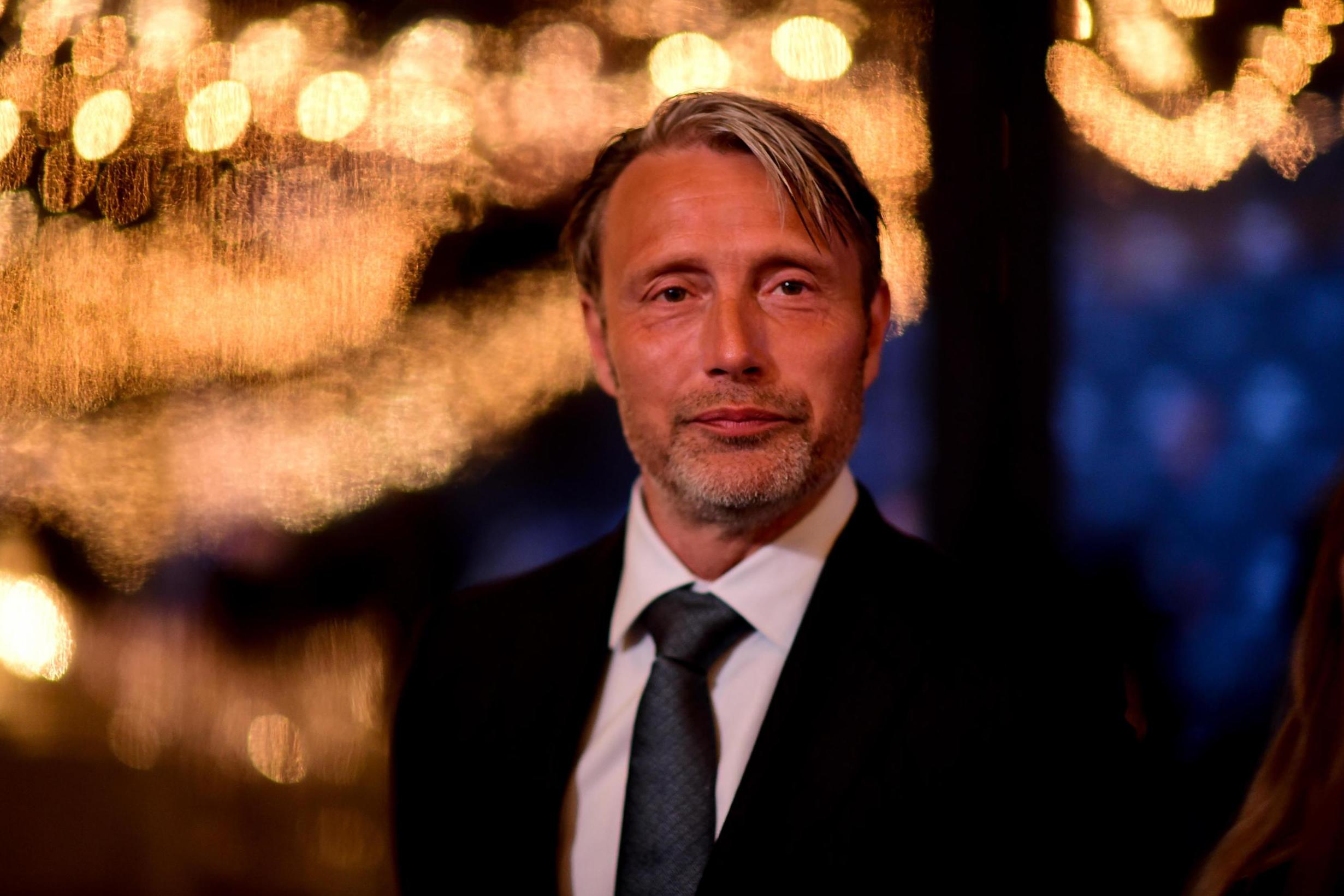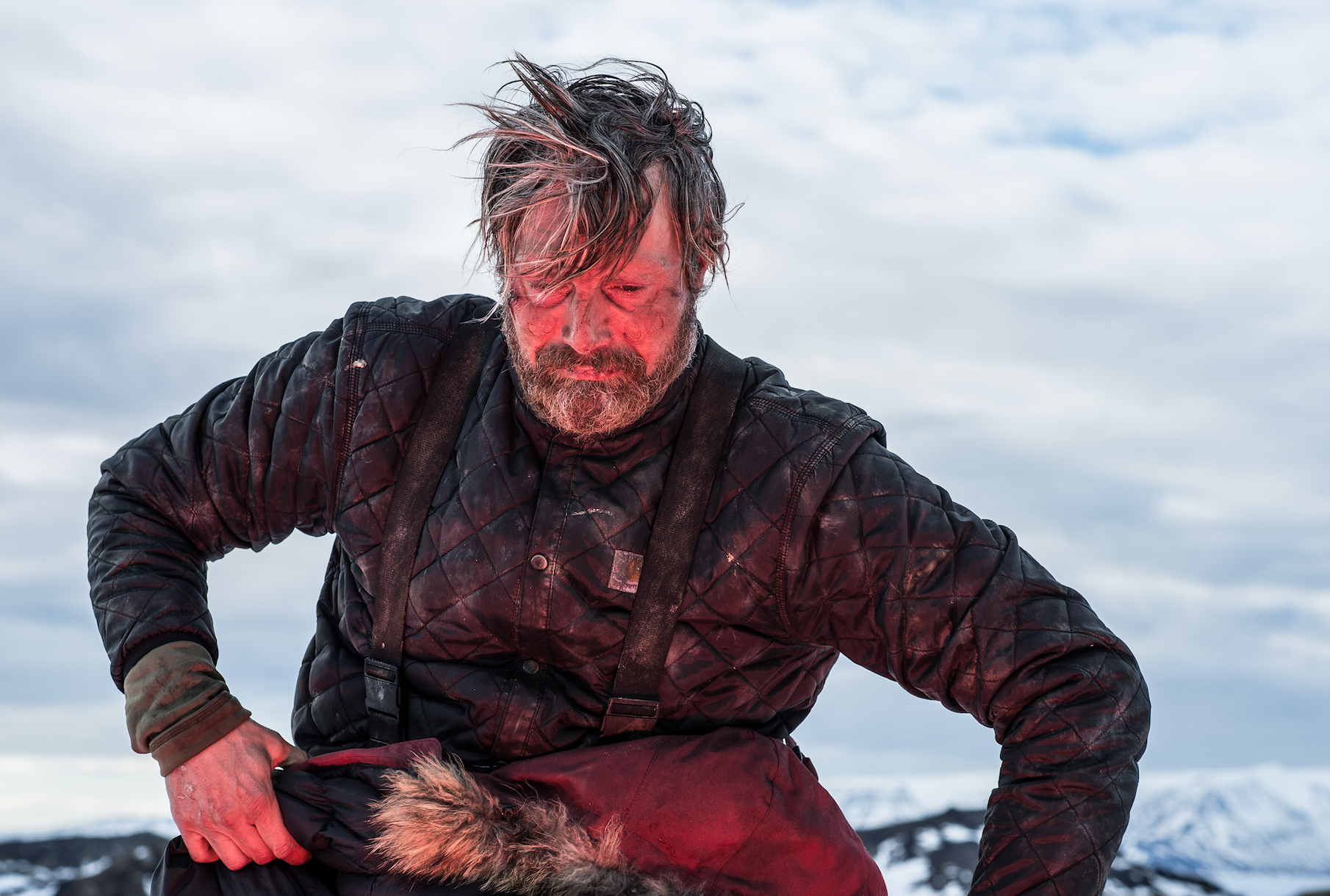Mads Mikkelsen interview: ‘I spent so much time alone, I was going crazy’
The Danish actor tells Alexandra Pollard about the gruelling shoot for his new film ‘Arctic’, which included working with a semi-trained polar bear, and why he won’t fall into the ‘trap’ of veering off-message


Your support helps us to tell the story
From reproductive rights to climate change to Big Tech, The Independent is on the ground when the story is developing. Whether it's investigating the financials of Elon Musk's pro-Trump PAC or producing our latest documentary, 'The A Word', which shines a light on the American women fighting for reproductive rights, we know how important it is to parse out the facts from the messaging.
At such a critical moment in US history, we need reporters on the ground. Your donation allows us to keep sending journalists to speak to both sides of the story.
The Independent is trusted by Americans across the entire political spectrum. And unlike many other quality news outlets, we choose not to lock Americans out of our reporting and analysis with paywalls. We believe quality journalism should be available to everyone, paid for by those who can afford it.
Your support makes all the difference.“In many ways, it was the most physical thing I’ve ever done,” says Mads Mikkelsen of his new film, Arctic, the gruelling tale of a man stranded in the snowy wilderness. “Ever.”
It’s a big claim, especially coming from Mikkelsen. For one thing, the Danish actor started out as a gymnast, and then spent a decade as a dancer, before quitting to study drama in 1996. He was already 31 by this point, but it didn’t take him long to make his mark – that same year, he appeared in the first of Nicolas Winding Refn’s acclaimed Pusher trilogy, as a troubled heroin dealer, a role he reprised in 2004 to critical acclaim. In 2006, he broke out worldwide as eye-bleeding super-villain Le Chiffre in the Bond film Casino Royale. Later came The Hunt (2012) – a forthright and hauntingly nuanced portrait of a man falsely accused of child sexual abuse – and more mainstream fare, such as Marvel’s Doctor Strange, and Rogue One: A Story Wars Story.
The 53-year-old has built a career on bringing gruff gravitas to smaller films, and a left-field sensibility – helped by his distinctive, inscrutable face, all high cheekbones and distinctive pout – to mainstream ones. But today, he doesn’t want to talk about any of that. He is here to talk about Arctic. And only Arctic.
In fact, Mikkelsen won’t even roam into Arctic-adjacent territory. I mention a recent interview, in which he contested the idea that there’s a message about climate change wrapped up in the film’s stark survivalist narrative. “That’s not what the film is about, that’s not the reason we made the film,” he says. “It’s a film about the difference between surviving and being alive. It’s a film about humanity.” Does he feel that in the current climate, both literally and politically speaking, people are increasingly seeing allegories that aren’t necessarily there? “I know exactly what you’re talking about, it’s The Guardian,” he says. “Of course that writer chose to make it what he wants, so I’m not making that mistake again. I’m talking about this film, and that’s it.” So he doesn’t want to talk about anything except the film? “No, because it always turns out to be the main message in the interview, and I’m not walking into that trap.”

I can see why Mikkelsen is so cautious – that interview certainly contained some contentious quotes – though I find it hard to see how he was “trapped”. After all, surely nobody forced him to say: “Yeah, the climate is changing, but to what degree are we a part of it, and to what degree are we not and what to do about that is a big question. I mean the science is divided. Right now it seems like it’s not, but it is divided.” He went on to suggest that nuclear energy was a possible solution, “but nobody wants to have a talk about that”. When the interviewer brought up #MeToo, Mikkelsen said he was “reluctant to go there”, citing the response to a 2017 Matt Damon interview – in which he suggested that sexual misconduct allegations be treated on a “spectrum of behaviour” – as evidence that “this is not a healthy discussion anymore”.
Does he feel he was misquoted? “Basically what I was trying to tell him is that when there is a conflict in the world, which there always is, and there is definitely now, the problem is the lack of communication between the two sides. The real lack of communication. And it seems to be that nobody is really interested in having that conversation, and that communication. And that’s all I have to say about that subject.” I breeze past the mild irony in what he’s just said.
I had wanted to ask him his thoughts on the progress of diversity in Hollywood, given that he’s been involved in three major franchises – Bond, Star Wars and Marvel – all of which are having to confront historical deficiencies in that regard. “I have tons to say about that,” he says, “but not in this interview. I’m trying to sell a film that I’m immensely proud of, and I know that it will drown unless we just stick to the subject.”
Back to the film, then. Thankfully, it’s a very good one. Aside from the brief, startling appearance of a polar bear (“It was a so-called ‘semi-trained’ polar bear, and that little giveaway told us absolutely not to go anywhere near it”), Arctic is a two-hander. In fact, Mikkelsen’s Overgård spends the first third entirely alone. We observe him going through the motions of his daily ritual – catching fish, carving out “SOS” in huge letters in the snow, checking his radio transmitter for signs of life – though he seems to have given up hope of being found. “He’s just there, he’s existing,” says Mikkelsen. “He’s surviving, rather than being alive.”
It was crucial to Mikkelsen that the film not fall into the “flashback trap”. We learn very little about the protagonist, what his life was like before his helicopter crashed. “In the Eighties, we started doing flashbacks and then everyone fell in love with that,” says Mikkelsen. The way he sees it, almost every film these days uses that structure. Or, at least, has the lead character regaling another with the story of their past. “It becomes a problem when we think it is a necessity, that we have to know that he has two blonde boys back home who are waiting for papa to come home. I mean, seriously, isn’t it heartbreaking enough? Do we really have to see these two kids crying back home? Can’t we just imagine how painful it is for everyone? I think that is the strength of this film, not to play the violins of emotions. And another thing, if we place him in a world that is very precise, it wouldn’t be me and you up there, it would be him, and we wanted it to be me and you in this situation. We wanted it to be a film about humanity and not a film about a specific person.”

Watch Apple TV+ free for 7 days
New subscribers only. £8.99/mo. after free trial. Plan auto-renews until cancelled

Watch Apple TV+ free for 7 days
New subscribers only. £8.99/mo. after free trial. Plan auto-renews until cancelled
If at first it is us and him, soon a third party enters the picture. When another helicopter crashes nearby, killing the pilot instantly, Overgård is given a reason to live. A young woman (María Thelma), the only other person in the helicopter, is badly injured but alive. Helping her survive becomes his only goal. “His humanity starts coming back to him,” says Mikkelsen. “He becomes, slowly, more and more alive.”
When Thelma turned up for her first day of filming, Mikkelsen was elated. “That was the happiest day on set when she came,” he said. “I had spent so much time alone at that point, I was going crazy. Having an actor to talk to and go through ideas with was just a gift from heaven. And obviously for the character himself, it was also the best day of his life. Even though it’s a disaster what happens, it’s also a gigantic gift.”
I was a little worried, when we first meet the woman (we never properly learn her name), that the film was going to turn into a romance. “I had the exact same feeling reading the script,” chuckles Mikkelsen, newly convivial, clearly happy to be back on topic. “She appeared and I was like, ‘Uh oh, here we go!’ I was so pleased it didn’t happen. If they’d spent 10 years out there, maybe it would have gone a different way, but that’s not the situation here. It’s absolutely not the first thing on your mind when you’re in a situation like this one. So yes, I was as pleased as you.”
There are moments of intimacy between them, though. At one point, when Overgård is laying the unconscious woman out onto a makeshift bed in his helicopter, he holds onto her for a moment longer than is strictly necessary. “It’s one of my favourite moments in the film,” says Mikkelsen. “It just came out of that situation actually, I was trying to lay her down on that bed, and then I realised that he would... he’s been craving this intimacy, another human being hasn’t been here for so long, so he just did it. It’s so beautiful. Not until we released the film... there were a few people commenting on that moment, in this era, [suggesting] that that could have been mistaken, but we never thought about that. We just thought it was such a beautiful moment.”
It’s not just because he’s had his fingers burnt that Mikkelsen only wants to talk about this film. He is evidently chuffed with it – particularly how it conveys, with only the sparsest of dialogue, the very essence of humanity and our need for connection. “It takes two to tango, it takes two people to become human,” he says. “It’s very, very difficult to be a human being all by yourself. So that’s the story we wanted to tell. In many ways, she’s the one saving him.”
Arctic is in cinemas and on demand now
Join our commenting forum
Join thought-provoking conversations, follow other Independent readers and see their replies
Comments